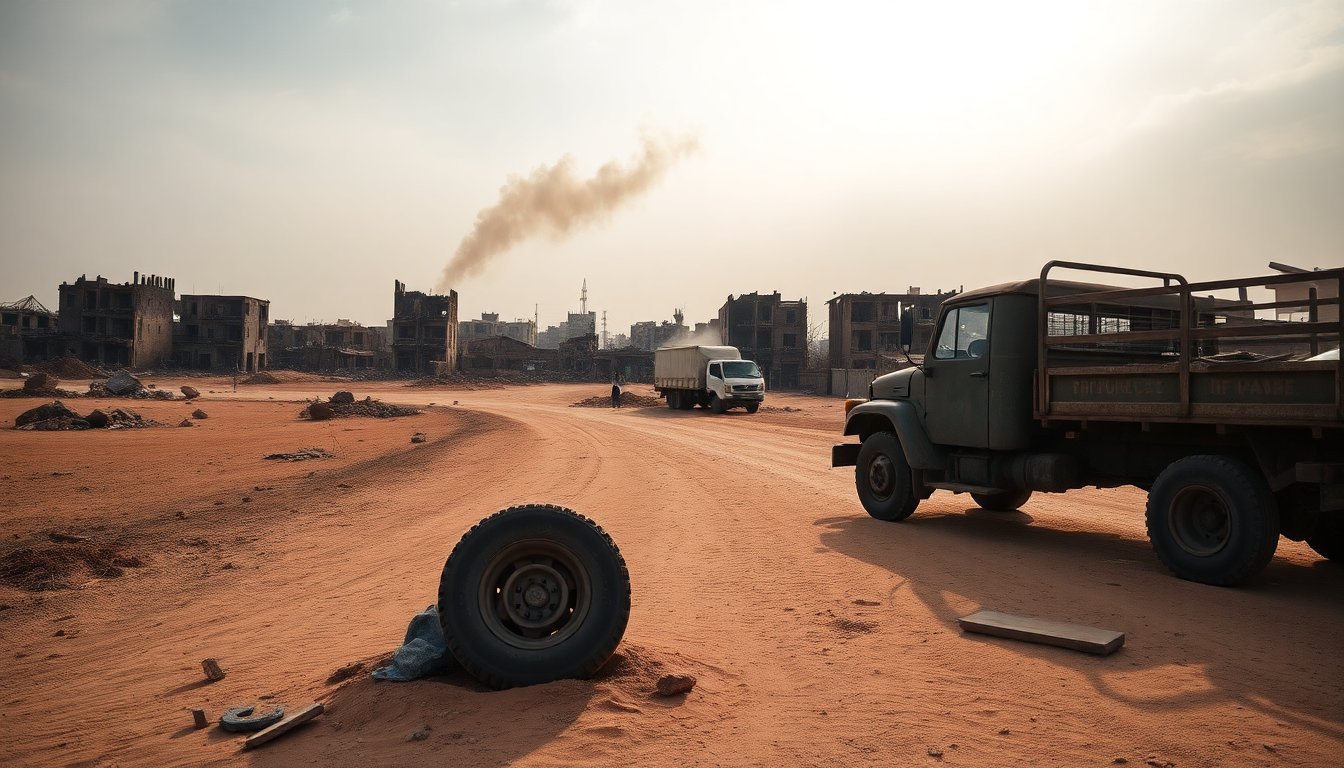Table of Contents
The ongoing civil war in Sudan has spiraled into an unprecedented humanitarian disaster, with the conflict igniting on April 15. As the violence escalates, civilian lives and infrastructure have been devastated, resulting in an estimated 150,000 fatalities and over 12 million people displaced within the country.
At the heart of this turmoil lies the city of El Fasher, the last bastion of the Sudanese Armed Forces (SAF) in the Darfur region. The city has faced a relentless siege for over 500 days, surrounded entirely by the Rapid Support Forces (RSF), a group facing allegations of ethnic cleansing. The situation worsened significantly when El Fasher succumbed to the RSF on October 26, leading to a surge in reports detailing horrific civilian massacres.
Evidence of Canadian arms in the conflict
Recent investigations by CBC’s visual investigations unit have uncovered that rifles branded with the logo of a Canadian arms manufacturer, Sterling Cross Defense Systems, are being utilized by the RSF. This Abbotsford, B.C.-based company specializes in firearms and ammunition, and its products have reportedly surfaced in multiple locations throughout Sudan.
Images shared on social media, corroborated by research organizations like War Noir and verified by CBC, illustrate RSF fighters wielding Sterling Cross’s XLCR sniper rifles. These rifles have been documented in various photos and videos since at least, with distinctive logos easily recognizable on their lower receivers.
Verification of arms usage
To validate these findings, CBC’s team employed geolocation techniques and matched the designs of the rifles to those used in Sudan. Notably, a video posted by the RSF on their official Telegram channel on October 5, showcased a fighter brandishing a sophisticated bolt-action precision rifle, once again revealing the Sterling Cross emblem.
Further evidence includes an undated Instagram post of an RSF fighter in desert camouflage, visibly holding the same Sterling Cross rifle. When approached for comments regarding these findings, Sterling Cross refrained from answering specific inquiries about their international arms sales, instead emphasizing their adherence to Canadian laws governed by Global Affairs Canada.
The broader implications of arms proliferation
Arms expert Kholood Khair, director of the think tank Confluence Advisory, highlighted the detrimental role of foreign weapons in prolonging Sudan’s conflict. In addition to Canadian arms, reports indicate the presence of weaponry from Turkey and Iran, as well as American and British components reaching the RSF through intermediaries in the United Arab Emirates (UAE).
Canada has maintained an arms embargo against Sudan since 2004 and has imposed sanctions on various entities linked to the conflict since. However, the path through which Sterling Cross’s weapons reached the RSF remains unclear. Experts suggest that the UAE has historically rerouted Canadian military equipment, raising concerns about oversight in arms exports.
Regulatory gaps and international accountability
Emadeddin Badi, a senior fellow at the Global Initiative Against Transnational Organized Crime, noted that Canada exports substantial quantities of weaponry to the UAE, which in turn supplies the RSF. The lack of a robust domestic defense industry in the UAE has made it reliant on foreign imports to meet the demands of various paramilitary groups across the region.
Furthermore, armored vehicles manufactured by Canadian firm Streit Group have been documented in the hands of RSF fighters for over a decade. In 2016, a UN report accused Streit Group and the UAE of facilitating arms transfers. Although Canada has joined international treaties aimed at regulating the arms trade, the opacity in monitoring the end use of these weapons raises significant concerns.
Conclusions and recommendations
With the UAE reportedly stepping back from its involvement in the Sudanese conflict, as indicated by senior diplomatic adviser Anwar Gargash, calls for accountability have intensified. Experts stress the need for Canada to enhance its arms export tracing system to ensure that weapons do not end up in the hands of violent actors.
Former Canadian envoy Nicholas Coughlin pointed out that existing legal mechanisms could be leveraged to impose stricter controls on arms exports to countries like the UAE. By adopting comprehensive monitoring strategies, Canada could better track the flow of arms and uphold its commitment to global peace and security.


